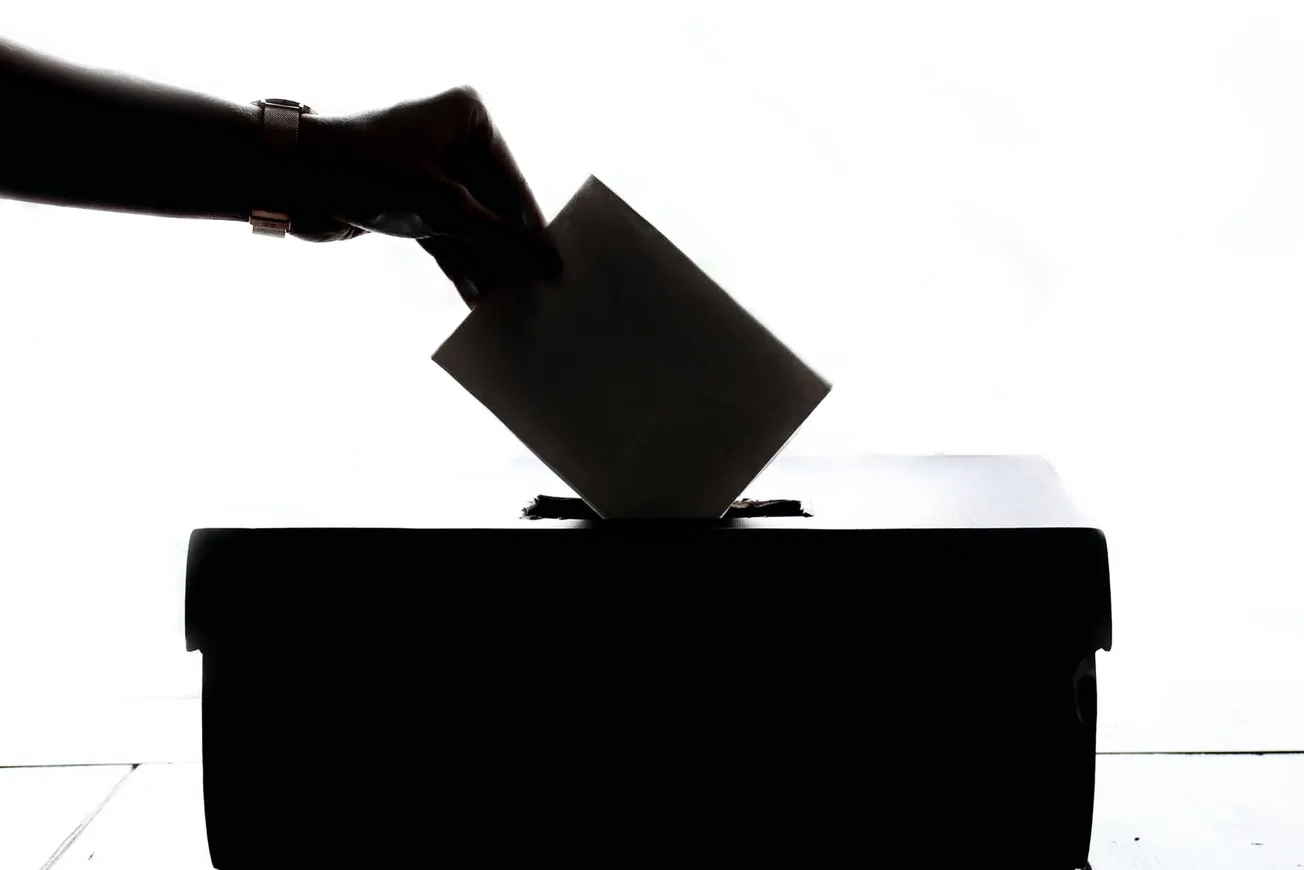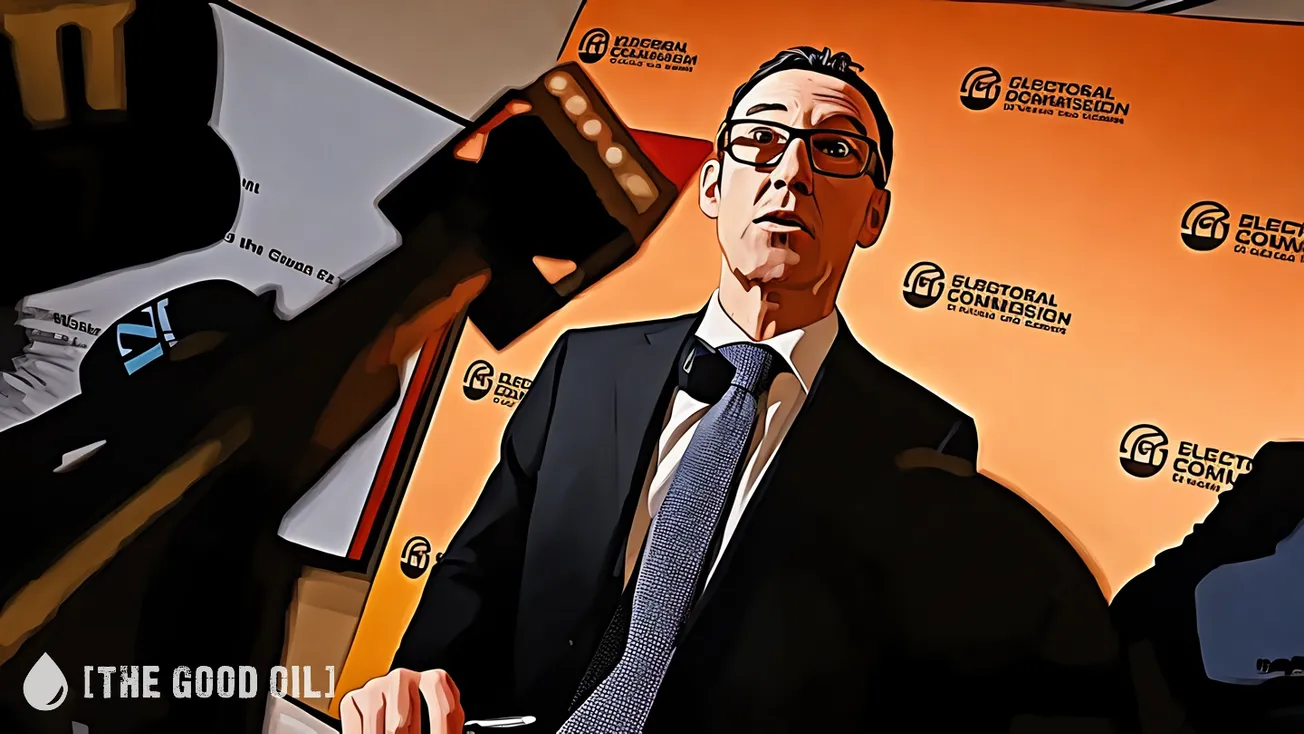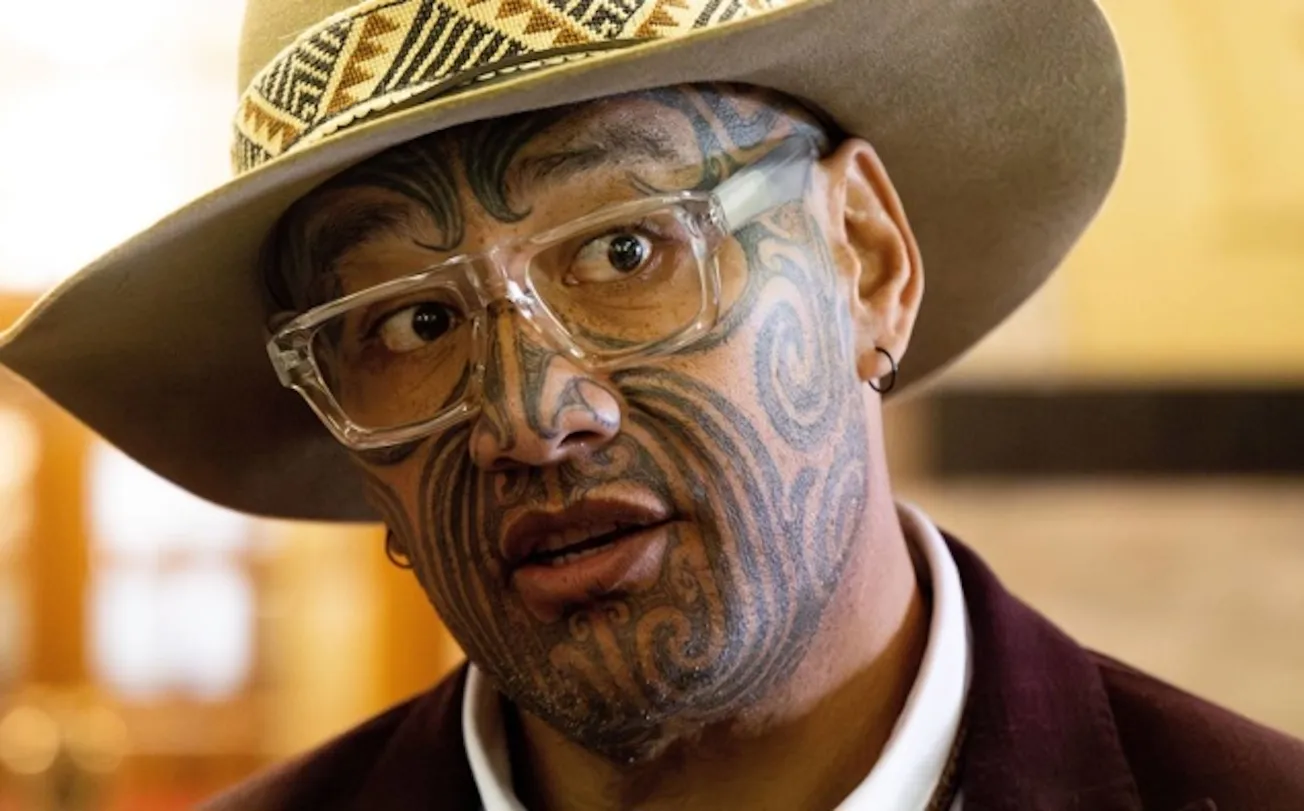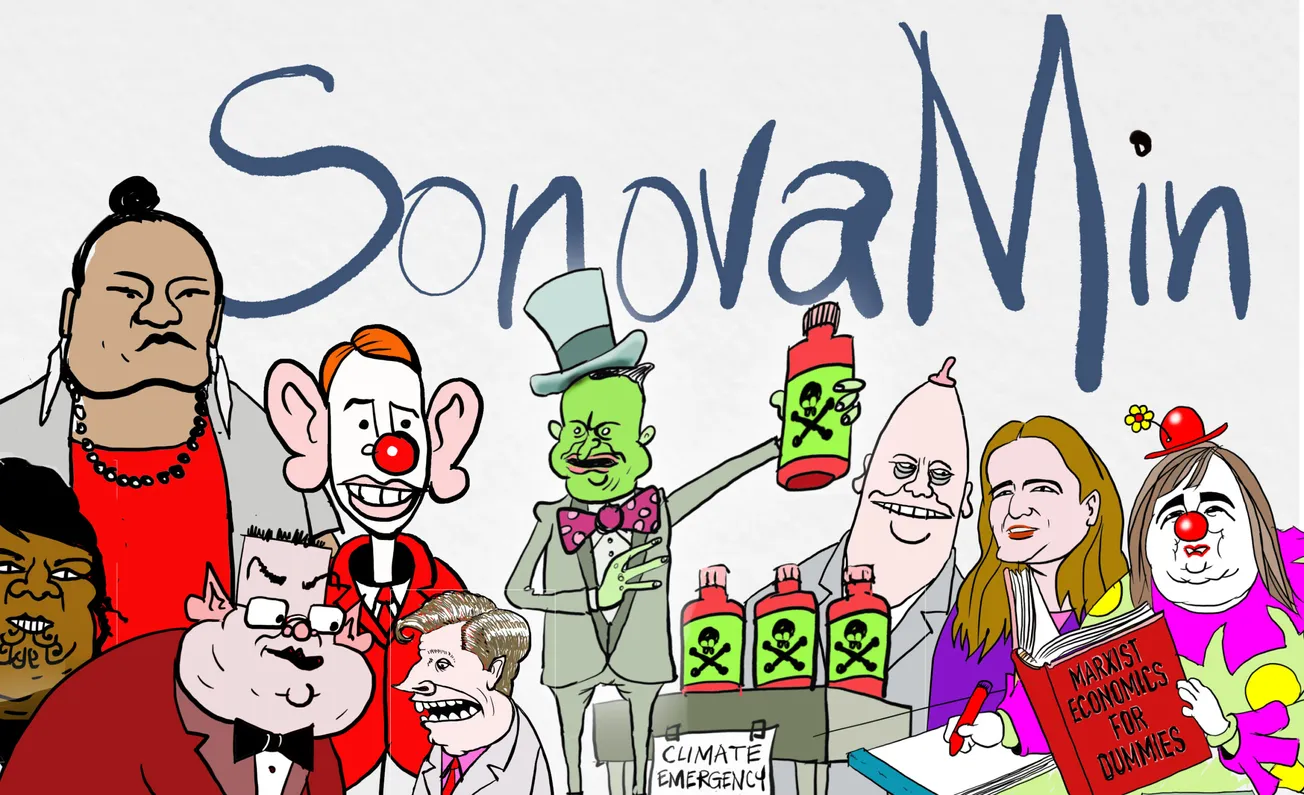Table of Contents
If you want to see a change of government in October, be sure you don’t have the wool firmly pulled over your eyes and do not pin your hopes on ‘magical thinking’ (the belief that thinking about something, or wanting it to happen, can make it happen).
The loss of 5 DemocracyNZ candidates last weekend has brought comments about wasted party votes to the fore this week, with several authors on this site writing articles about it, including Cam Slater, who calls the ‘magical thinking’ of small parties “hopium”.
In the Herald last Sunday, DemocracyNZ party leader Matt King said, “Recent developments were nothing new for political parties in the lead-up to the polls,” and maintained his party remained, “strong, united, committed and focused on its mission.”
That is delusional. Losing 5 candidates just over 3 months before an election surely has to be a first and, for a small, new party, it has to be close to catastrophic.
Historically, new political parties simply fail to get past the 5% threshold.
Without an electorate seat, a minor and new political party is unlikely to make it into parliament.
Look at history and crunch the numbers.
The 2014 election saw the Conservative Party attain 95,598 votes, which was 3.97%, and no electorate seat, therefore no seats. United Future got 5,286 votes, a mere 0.22%, plus Peter Dunne’s electorate seat. Without a 5% threshold to get past, the Conservative Party would have ended up with 5 seats. But they didn’t. Meanwhile the Maori Party, with 1 electorate seat and 1.32% of the vote, brought in an additional list seat.
The 5% threshold is a significant, and in most cases insurmountable, hurdle for new or small parties.
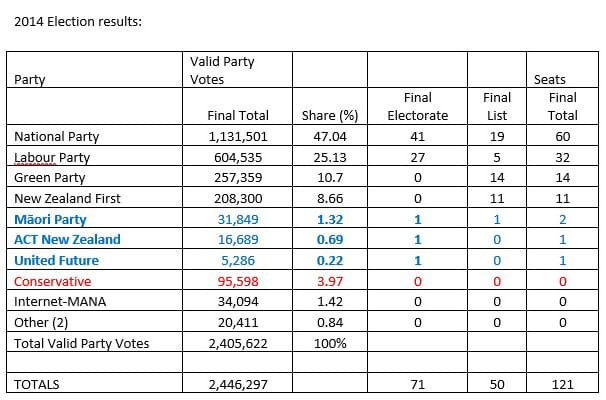
DemocracyNZ’s hopes rest on Matt King winning the Northland electorate seat. It’s ‘magical thinking’ and here’s why it won’t happen:
Previous Northland Results:
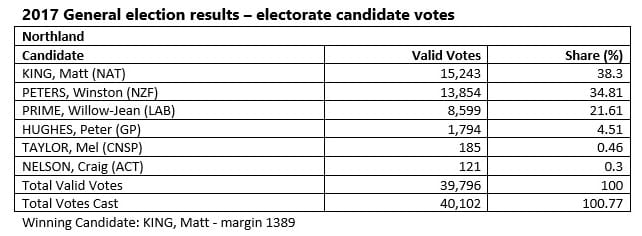
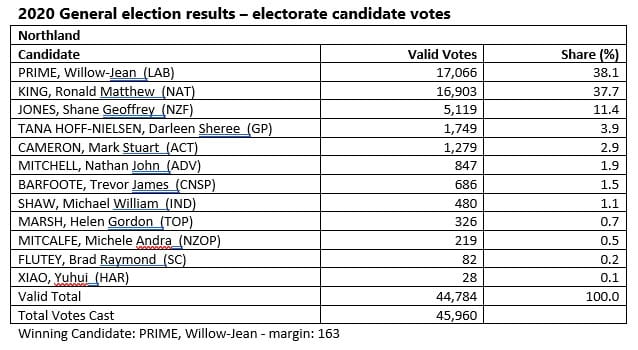
Assuming an increase of 5,000 valid votes cast, making the total 50,000, here’s how 2023 might look:
- Labour drop from 38.1% to 21%
- NZ First retains about the same at 12%
- Others hold at 12.8%
- National gain 5% to 32%
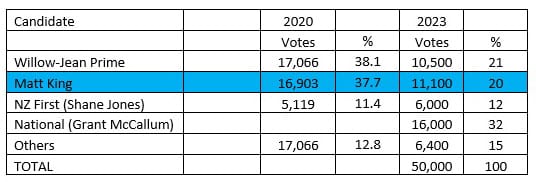
The numbers of course may well vary but I suspect not hugely. The percentage left over for Matt King is critically important: even 20% is a big ask and it won’t get him over the line. Only ‘magical thinking’ could see it any other way.
Thinking voters over the whole of New Zealand need to do their own version of the above calculation and draw their own conclusions. Historically, the 5% threshold has been insurmountable.
Without an electorate seat, a minor political party is unlikely to make it into parliament.
If you want to see a change of government in October, vote strategically and remember that ‘magical thinking’ won’t cut it.

